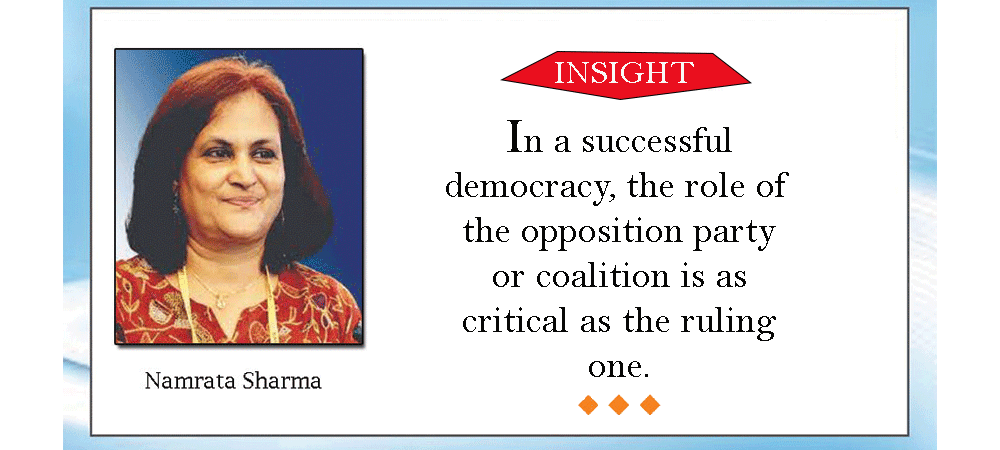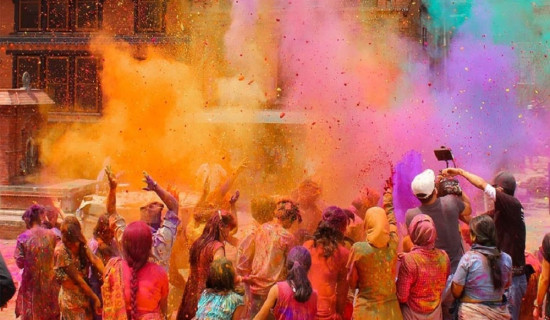- Tuesday, 3 March 2026
Importance Of A Strong Opposition
In the November 20 elections to the House of Representatives (HoR) and Provincial Assemblies (PA), Nepalis selected a set of old but experienced, together with a completely new and fresh, representatives. The elected parliamentarians and political parties must now get the cue that the voters have given to them. A ruling coalition must now be in place to form a government that can formulate laws and policies based on old experience and new knowledge and skills so as to develop a path of prosperity for the country and its people. For this to happen, the government also needs to be stable for the next five years. Therefore, a power-sharing strategy needs to be the least priority.
Watchdog
In a successful democracy, the role of the opposition party or coalition is as critical as the ruling one. Time has come for Nepal to have a strong opposition that can act as a watchdog over the government and make sure the right and appropriate policies are put in place. During this election, knowingly or unknowingly, a group of youths with different professional and educational backgrounds got together and formed a party as an alternate party to bring about a change in the country just five months before the election. The Rastriya Swatantra Party (RSP) came up surprisingly and has succeeded in becoming a national party by winning the required first-past-the-post (FPTP) and proportional representational (PR) seats. As a new national level party, RSP should stay in the opposition and make sure a stable government continues for the next five years to help the country tide over the current state of uncertainty and economic crisis. In the process, it will also help in institutionalising their newly formed political set up.
Nepal has now completed the national and local elections for the second time since it was declared a federal republic. As the winners under both the FTPT and the PR categories have been declared, the formation of the new government is now in the process. A total of 825 people’s representatives were elected. Of them, 275 were elected as members of the House of Representatives (HoR) while 550 as members of the PA. Women’s participation in the HoR stands at 33.10 per cent while 36.36 per cent in the PA.
Prior to the 2022 Nepal elections, politicians went through a rigorous exercise of joining hands with each other, crossing ideologies and parties and bickering with each other. There was an unhealthy political game strategy demonstrated where political parties, with completely opposite value systems formed coalitions. The political leaders who were at each other’s throats worked together in a calculative mode to get election tickets, contest, win and become member of parliaments.
Juxtaposed to the political parties, the voters seem to have foresight of how to help in the progress of the country. They have cast their votes and shown that the Nepali people actually want a combination of old and new faces to govern their country. Although there was a big campaign of #NoNotAgain to oust the senior politicians who had already served as parliamentarians several times, the Nepali citizens elected senior political stalwarts including Sher Bahadur Deuba, Pushpa Kamal Dahal Prachanda, KP Sharma Oli, Prakash Man Singh, among others, who have contributed a lot to the re-establishment of democracy in the country. However, they have been accused of not succeeding in making sure that a government completes its five-year term as mandated by the people.
Now that the HoR and PA election results are out, as per Article 76 (2) of the Constitution of Nepal, 2015, President Bidya Devi Bhandari has called members elected to the HoR to submit the name of the Prime Minister. This process has been initiated since no single party has secured majority in the HoR to form a government on their own. On 17th December, the parties were given 7 days to submit the name of the proposed Prime Minister who can garner support to form a new coalition government. The PM is then required to prove the confidence from the House within 30 days.
High chance
The incumbent Prime Minister Deuba stands a high chance of continuing his premiership. However, this is still uncertain. The time has now come for the politicians to reflect on the results of both the local and national elections. The people have shown in both cases, especially the elections for the HoR and PA, that they want both old and new faces to rule the country with the hope that a change is brought which will help them to move towards prosperity and happiness.
Nepal is a country with a rugged terrain. Being a land-locked country, the need to be dependent on her big neighbours to the north and south is an undisputed reality. The nation has an abundance of natural resources including water, flora, fauna and mountains together with the human resources who never fail to work hard to build their country and lives. The new government must be such which can govern the country for the full term and put sustainable development strategies and foreign policies in place by utilising the country’s human and natural resources. Equally important is that the new faces that have come into politics can form a strong opposition to make sure that it happens.
(Sharma is a journalist and women rights advocate and can be reached at namrata1964@yahoo.com Twitter handle: NamrataSharmaP)
















